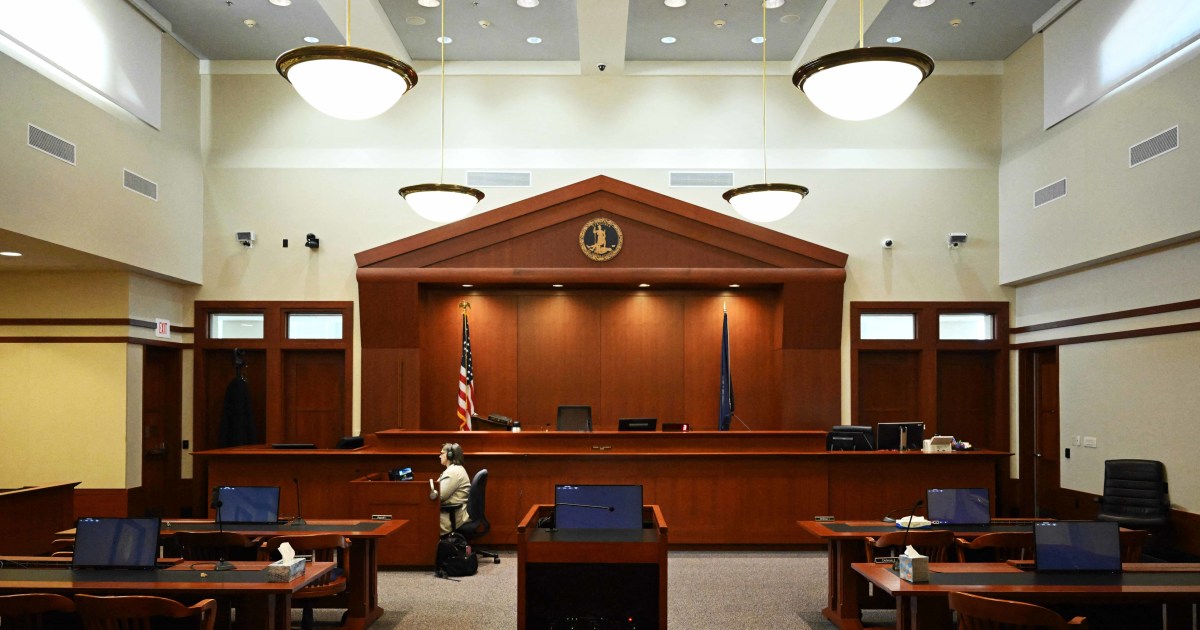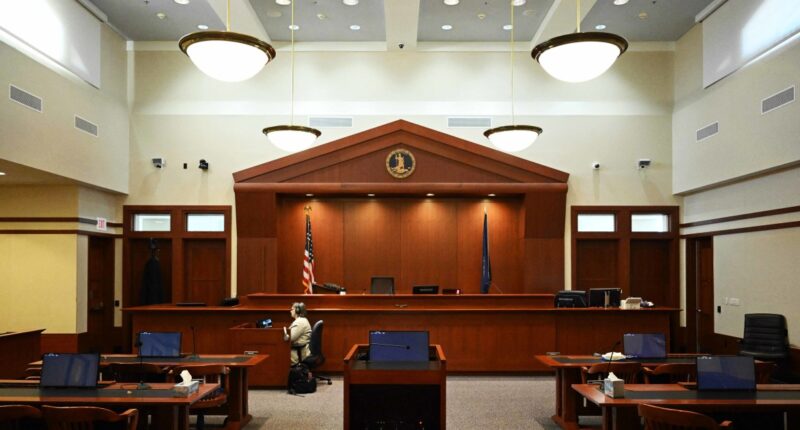
Voters in Northern Virginia will pass judgment on a trio of progressive prosecutors in Democratic primaries on Tuesday — part of a flood of district attorney elections over the next two years in some of the nation’s most populous counties.
For years, local prosecutor races were characterized by a sleepy non-competitiveness, with entrenched incumbents typically winning term after term. But a wave of criminal justice reform-oriented district attorneys have won office around the country over the past decade, as activists and donors targeted the offices as key venues for achieving reform goals — and as voters in major metro areas warmed to messages like eliminating racial disparities in the justice system and using new diversion programs for some offenders in lieu of prison time.
Now, three progressive challengers elected in 2019 while promising to reform the commonwealth’s attorney offices in Virginia’s Arlington County, Loudoun County and Fairfax County are facing Democratic opponents four years later, challenging them over how they’ve run their offices, handled high-profile cases and fulfilled campaign promises.
All together, the counties cover nearly 2 million residents: Fairfax Commonwealth’s Attorney Steve Descano faces trial lawyer Ed Nuttall, who gained prominence representing police officers in big cases; Loudoun’s Buta Biberaj is running against attorney and former public defender Elizabeth Lancaster; and Arlington’s Parisa Dehghani-Tafti is facing a former subordinate from her own office, Josh Katcher. All three incumbents were elected in 2019 with support from Democratic megadonor George Soros’ Justice & Public Safety PAC, which spent millions to help Descano and Dehghani-Tafti defeat former incumbents in Democratic primaries and get Biberaj through a tight general election.
At stake in her race in 2023, Dehghani-Tafti said, is whether the changes she has been working on for the past four years will continue. She touted her office’s elimination of cash bail and its use of drug court and a behavioral health docket to deal with certain defendants outside of the prison system.
“If you look at 2019, I ran on very, very specific issues. I made very specific promises,” Dehghani-Tafti said in an interview. She added later: “What we’re doing is already bearing fruit, but we need to do it for a lot longer.”
Katcher, a former prosecutor in the office under Dehghani-Tafti and the previous commonwealth’s attorney she defeated in 2019, has said he broadly agrees with Dehghani-Tafti’s motives on reforming the criminal justice system but argues that she hasn’t run the Arlington office well enough to carry out her goals.
“My commitment to the community on my literature is ‘real reform, real justice,” Katcher said. “And I think we’re doing neither right now.”
In fact, both campaigns are running as “reformers” (though they argue over who really means it). It’s a sign of what voters in many of the nation’s largest jurisdictions, which lean Democratic, want to see from their prosecutors, in a shift over recent decades.
“If someone asks if I’m the ‘law and order’ candidate, I say, no, I’m not that guy,” Katcher said. “I can talk fluently about that as a reformer.”
He criticized Florida Gov. Ron DeSantis and other Republicans who have attacked progressive prosecutors over a recent nationwide trend of rising crime, saying they are “reducing something very complicated into simplistic positions that are unserious” about criminal justice.
Dehghani-Tafti insists that she is the real reformer in the Arlington race, calling Katcher’s campaign rhetoric “a recognition that the language is very persuasive,” she said.
While some of the first wave of progressive prosecutors are seeking reelection, others are still trying to break new ground. Last month, the longtime district attorney in Allegheny County, Pa., Stephen Zappala, handily lost his Democratic primary to Matt Dugan, who was the county’s chief public defender. Dugan criticized Zappala as an incumbent who paid lip service to reform but had accomplished little in decades in office in the Pittsburgh area.
“The vast majority of people we see in the criminal justice system are low-level, nonviolent offenders, mostly for three reasons — substance abuse, untreated mental health issues, and poverty,” Dugan said in an interview before his primary victory. The system, he added, “does a really good job of cycling folks through thousands of times a year without addressing those core issues, and then the system acts surprised and indifferent when those folks” recidivate.
Zappala did not respond to a request for an interview.
Dugan’s campaign was backed by hundreds of thousands of dollars from the Soros-funded Justice and Public Safety PAC. The Democratic megadonor has poured millions of dollars into district attorney races around the country in recent years, backing progressive candidates and often boosting them to victory.
Zappala attacked Dugan in the final weeks of the primary for accepting money from Soros’ group, but Dugan won the Democratic nomination by 11 percentage points anyway.
In a twist, Zappala won the vacant Republican primary via the write-in vote. Zappala and Dugan, who recently resigned his post to focus on the election, will face off again in the Allegheny County general election in November.
That contest will lead into a busy 2024 for district attorney races. The presidential election — and Donald Trump’s upcoming trial in federal court — will dominate the political news next year. But prosecutors across counties in Arizona, Colorado, Florida, Georgia, Illinois, Michigan, New York, Ohio, Oregon, Texas and Wisconsin, among other states, will be on the ballot next year, according to election data collected by the University of North Carolina’s “Prosecutors and Politics Project” and Bolts magazine.
That includes the largest county where the progressive prosecutor movement has failed to get a foothold so far: Maricopa County, Ariz. Anchored by Phoenix, the fourth-largest county in the U.S. narrowly elected Republican county attorneys in recent years, even as it shifted to the left. GOP incumbent Rachel Mitchell will be up for a full term next year.
The only three counties in the nation that are bigger than Maricopa could also see spirited races for their Democratic-controlled prosecutor offices in 2024, each of them emblematic of the increasing attention, conflict and controversy that has come with the surge in interest in district attorney campaigns.
Los Angeles District Attorney George Gascon has faced an attempted recall and opposition from some career prosecutors and law enforcement officers since he won his post in 2020; he is up for reelection in 2024. Cook County, Ill., State’s Attorney Kim Foxx announced she will not run for reelection next year, opening up the prosecutor’s office in Chicago. And Harris County, Texas, District Attorney Kim Ogg has already drawn a primary challenger from the ranks of her former staff.
Whitney Tymas, the president of the Soros-funded Justice and Public Safety PAC, declined to discuss future races her group might target. But she said it will continue to spend on district attorney races.
“We continue to successfully assist candidates who, without our support, wouldn’t have the resources to have a shot,” Tymas said.
Source: | This article originally belongs to Nbcnews.com










